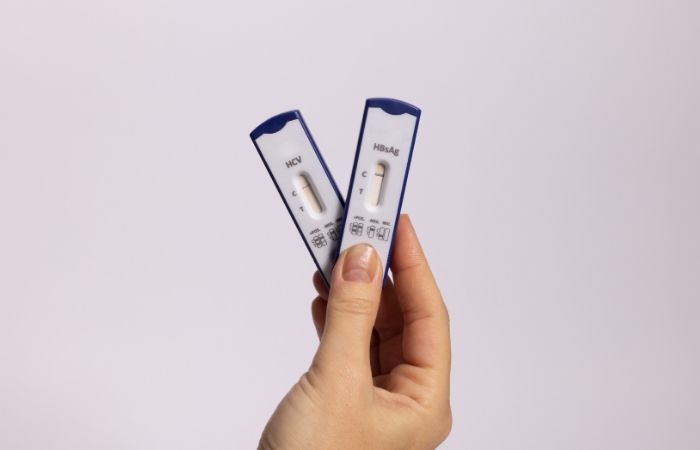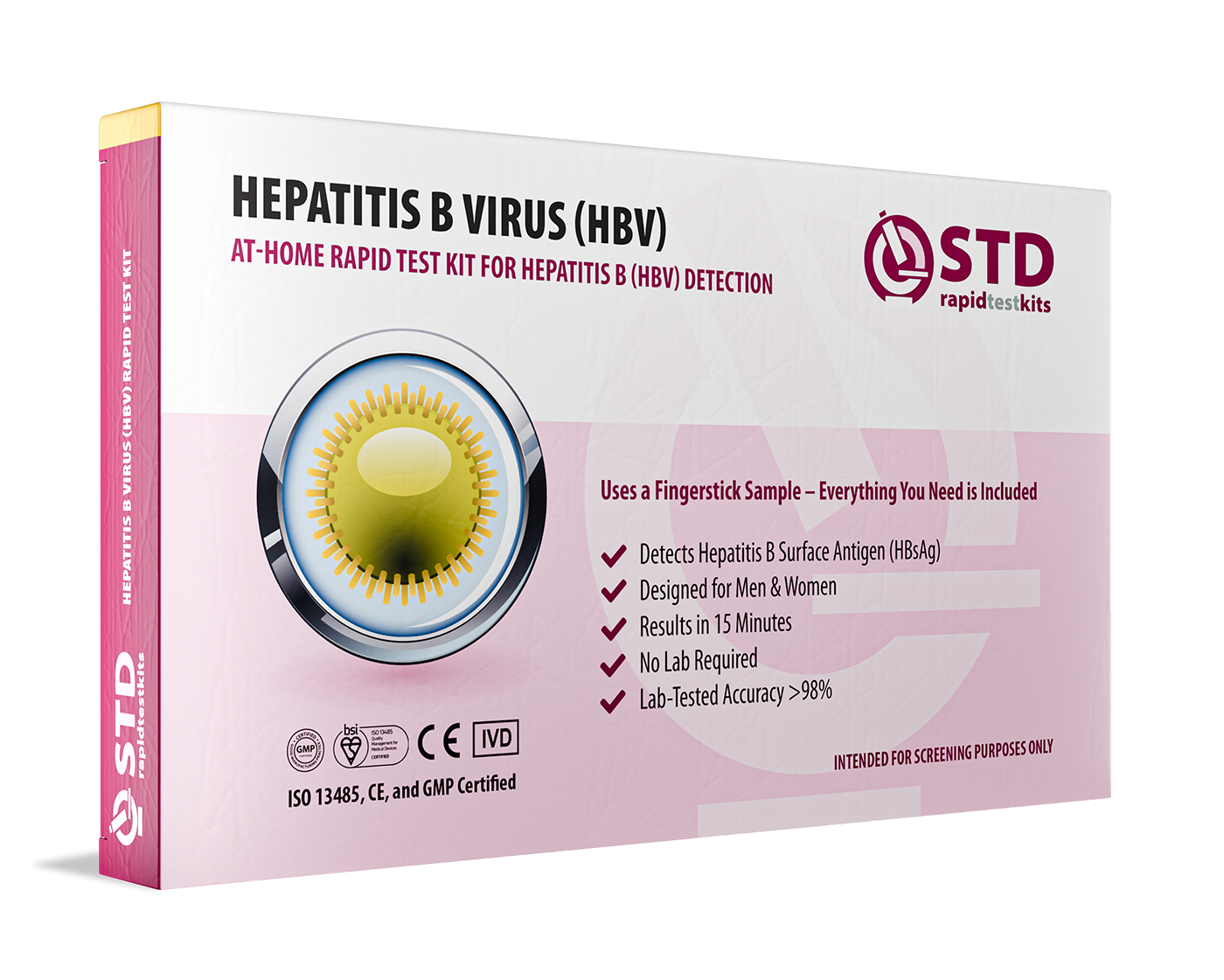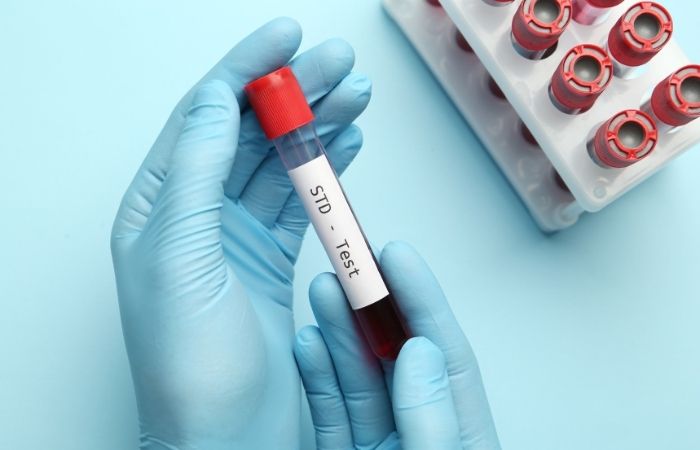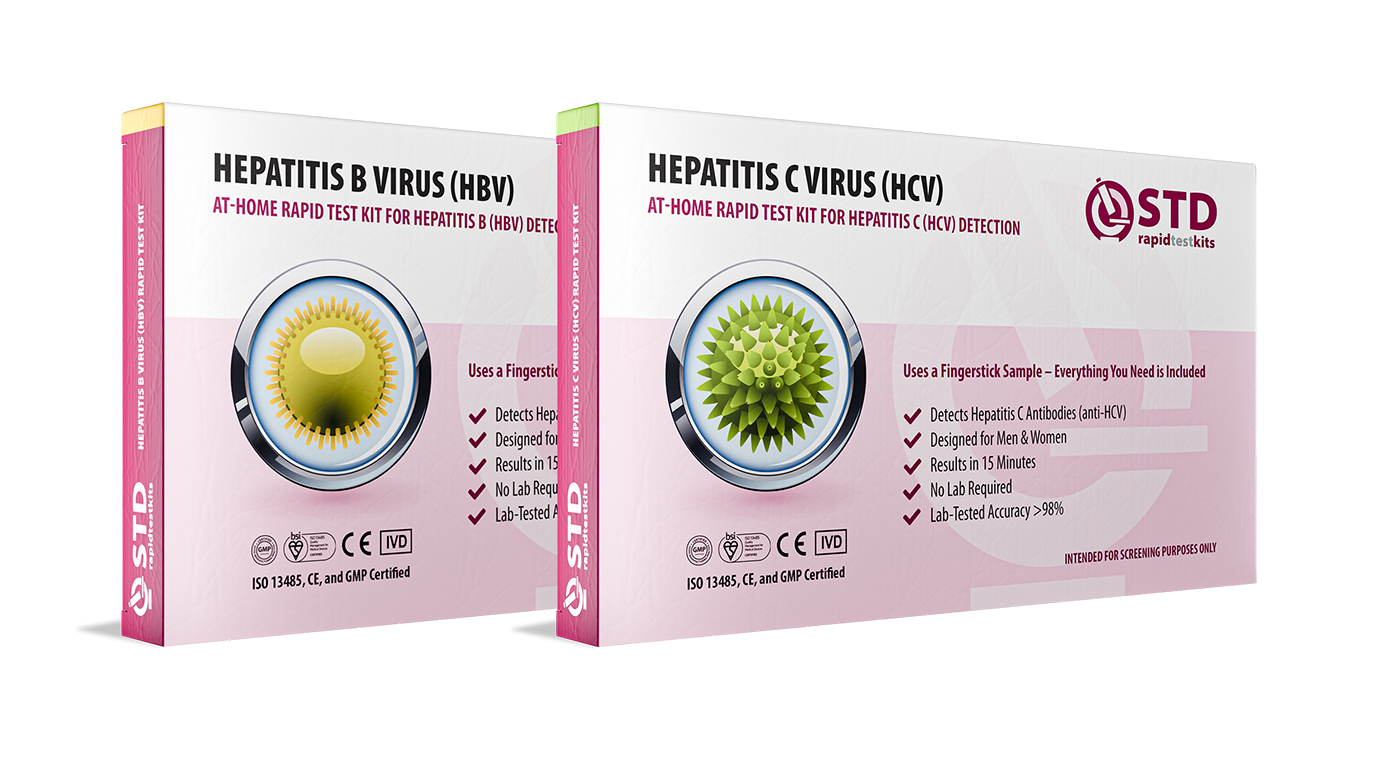Quick Answer: The Hepatitis B virus (HBV) can survive for up to 7 days outside the body on environmental surfaces like razors, toothbrushes, or dried blood, remaining infectious the entire time.
What Is Hepatitis B, and Why Is It So Resilient?
Hepatitis B is a bloodborne virus that attacks the liver. It spreads through contact with infected blood, semen, vaginal fluids, or even open sores. It’s highly contagious, 100 times more infectious than HIV, and it doesn't need sex or needles to travel. What makes HBV especially troubling is its environmental resilience. Unlike viruses that die quickly in air, HBV can:
- Survive in dried blood for up to a week
- Remain viable at room temperature
- Stay infectious even without visible bodily fluids
This means everyday objects, razors, nail clippers, shared bathroom tools, can harbor risk, even when they look clean.

People are also looking for... Is It the Flu, or Acute Hepatitis B?
How Long Does Hepatitis B Live on Surfaces?
According to the CDC, Hepatitis B can remain viable and infectious on nonporous surfaces for at least 7 days. That includes:
- Bathroom counters and sink handles
- Toothbrushes, razors, tweezers
- Shared medical tools (thermometers, blood glucose devices)
- Sex toys and menstrual cups
Even microscopic traces of dried blood or bodily fluid are enough to transmit the virus if they enter the body via:
- Broken skin (cuts, scrapes, shaving nicks)
- Mucous membranes (mouth, eyes, genitals)
Let that sink in: the dried blood from someone else’s razor five days ago? Still a potential exposure point.
Does the Virus Die When It Dries?
Not immediately. HBV isn't destroyed just because the blood is dry. While the virus is outside its host, it enters a sort of suspended animation, remaining dormant but fully capable of infecting anyone who comes into contact with it.
What doesn’t kill it:
- Dry air
- Sunlight (unless prolonged and direct)
- Basic soap
- Alcohol wipes (unless ≥70% concentration and used correctly)
What does kill it:
- Bleach (1:10 dilution)
- Autoclaving or boiling
- Medical-grade disinfectants labeled for bloodborne pathogens
For shared environments, like barbershops, gyms, dorms, or shelters, knowing how long HBV lasts and how to eliminate it is crucial to staying safe.
High-Risk Objects That Can Harbor Hepatitis B
You don’t need to share needles or have sex to be exposed to HBV. Many everyday objects can silently carry the virus, especially if blood or body fluids were involved. Common culprits include:
- Razors: Even the tiniest cut can leave behind dried blood that remains infectious for days.
- Toothbrushes: Bleeding gums during brushing can deposit viral particles.
- Nail clippers & tweezers: Shared grooming tools can hold trace blood between blades.
- Menstrual cups or reusable period products: Improperly sanitized items can be high risk.
- Sex toys: Especially if shared or not cleaned properly between partners.
Many people assume you need visible blood to transmit Hepatitis B, not true. Even microscopic amounts of infected fluid can carry the virus.
Check Your STD Status in Minutes
Test at Home with RemediumHepatitis B Test Kit

 For Men & Women
For Men & Women Results in Minutes
Results in Minutes No Lab Needed
No Lab Needed Private & Discreet
Private & DiscreetOrder Now $33.99 $49.00
Can You Get Hepatitis B From a Public Bathroom?
The short answer? It's extremely unlikely, but not impossible under the right (or wrong) conditions.
Low-risk surfaces:
- Toilet seats
- Doorknobs
- Floor tiles
Higher-risk conditions:
- Open wounds or fresh cuts coming into contact with infected blood
- Touching contaminated surfaces followed by eye, mouth, or genital contact
- Improperly cleaned bathroom surfaces with dried blood traces
While public spaces are less of a concern than personal grooming tools, universal precautions still matter. Disinfect shared surfaces, wear gloves when cleaning blood, and avoid sharing personal hygiene items.
Can Dried Blood Transmit Hepatitis B?
Yes, and this is one of the most misunderstood risks. HBV can remain infectious in dried blood for up to 7 days. That includes:
- Blood on clothing or fabric
- Blood under fingernails
- Blood in cracks of shared surfaces
- Blood on bandaids or sanitary products
This is why health professionals use bleach solutions and gloves when cleaning up dried blood, even tiny drops.
Myths About How Hepatitis B Spreads
Let’s bust a few fears, and clear up real vs imagined risks. Myths:
- “You can get it from hugging or casual contact.” – FALSE
- “If blood is dry, the virus is dead.” – FALSE
- “Hand sanitizer kills it.” – Not reliably
- “Toilet seats spread HBV.” – Extremely unlikely
Real risks:
- Shared razors, toothbrushes, or sex toys
- Accidental needle sticks or body piercings with unsterilized tools
- Blood-to-blood contact (even invisible amounts)
Knowledge reduces fear, and helps you stay safe without spiraling into paranoia.

People are also looking for... How Hepatitis C Moves Without You Noticing
Living with Others: Shared Space, Not Shared Risk
If you live in a dorm, share a bathroom, or have a partner with Hepatitis B, you don’t need to panic, you just need to be smart.
Protective tips:
- Use your own razor, toothbrush, tweezers, and sex toys
- Don’t share nail clippers or menstrual products
- Disinfect bathroom surfaces regularly with bleach-based products
- Keep cuts and scrapes covered
- Wash hands thoroughly after contact with blood or bodily fluids
Also, get vaccinated. The Hepatitis B vaccine is one of the most effective tools we have. If you’re in close contact with someone who is Hep B positive, it’s essential.
How to Kill Hepatitis B on Surfaces (and What Doesn’t Work)
To stop HBV from spreading through objects or surfaces, proper disinfection is critical. But not every cleaner is strong enough, and many people use the wrong methods.
Effective Disinfectants:
- 1:10 bleach solution: Mix 1 part household bleach with 9 parts water. Let it sit on the surface for at least 10 minutes.
- EPA-registered disinfectants: Look for products that specifically mention "kills HBV" or are labeled for bloodborne pathogens.
- Boiling or autoclaving: For reusable items like metal tools or sex toys (check materials first).
Not Effective (or Inconsistent):
- Regular hand soap (alone)
- Vinegar or “natural” cleaners
- Basic alcohol wipes (unless 70%+ ethanol and used properly)
- Surface sprays without antiviral labeling
Always wear gloves when handling contaminated items or dried blood. And wash your hands thoroughly with soap and water afterward.
How Hepatitis B Compares to HIV and Hep C (Survival Time)
Let’s put this in perspective. HBV isn’t just more contagious than HIV, it’s more resilient outside the body, too.
| Virus | Can Survive Outside the Body | Infectious Dose |
|---|---|---|
| Hepatitis B | Up to 7 days | Extremely low (as little as 0.00004 mL of blood) |
| Hepatitis C | Up to 4 days | Moderate (but lower than HIV) |
| HIV | Minutes to hours | Relatively high (needs larger fluid exposure) |
This comparison highlights why universal precautions are so important, even when people think a space is “clean.”
Check Your STD Status in Minutes
Test at Home with RemediumHepatitis B & Hepatitis C Test Kit

 For Men & Women
For Men & Women Results in Minutes
Results in Minutes No Lab Needed
No Lab Needed Private & Discreet
Private & DiscreetOrder Now $49.00 $98.00
For all 2 tests
The Mental Load: OCD, Germ Phobia, and HBV Anxiety
For people with anxiety or OCD, learning that a virus can survive for days outside the body can be triggering. And while the facts matter, so does compassion.
If you’re spiraling:
- Remember that most surface transmission is low-risk with proper hygiene.
- Use knowledge to empower, not overwhelm, you.
- Stick to basic safety: don’t share personal items, clean surfaces, and get vaccinated.
- Talk to a mental health professional if you find yourself stuck in fear loops.
It’s okay to want to be safe. But don’t let that drive you into isolation or obsessive cleaning. There’s a balance between caution and control.
What This Means for Safer Sex
Sexual activity doesn’t stop because someone has Hepatitis B, and it doesn’t have to. The key is knowing how to protect both partners. Best practices:
- Use condoms and dental dams to prevent blood or semen contact
- Wash toys between uses and disinfect them after shared use
- Don’t share lube tubes (especially if fingers have been inserted)
- Get vaccinated, if your partner has HBV and you don’t, this is essential
Being sex-positive includes being infection-aware. You can have intimacy, trust, and safety, without losing pleasure or connection.
FAQs
1. Can Hepatitis B survive outside the body?
Yes. HBV can survive on surfaces and remain infectious for up to 7 days, especially in dried blood.
2. What kills the Hepatitis B virus on surfaces?
A bleach solution (1:10 dilution), autoclaving, or EPA-registered disinfectants labeled for bloodborne pathogens.
3. Can I get Hepatitis B from a toothbrush?
Yes, if it has trace blood from an infected person and is shared. Always use your own toothbrush.
3. Do condoms prevent Hepatitis B?
Yes, latex condoms significantly reduce the risk of transmission during sex.
4. Does hand sanitizer kill HBV?
Not reliably. Most hand sanitizers aren’t sufficient for killing HBV unless they’re medical-grade alcohol-based at 70%+.
5. Is it safe to kiss someone with Hepatitis B?
Yes, casual contact like kissing poses very low risk unless there are open sores or blood present in the mouth.
6. Should I worry about Hep B in public restrooms?
The risk is very low, but disinfecting shared surfaces and avoiding broken skin contact is smart practice.
7. Can dried blood carry HBV?
Yes, dried blood can carry viable HBV for several days, especially in cool, dark environments.
8. How do I protect myself if I live with someone who has HBV?
Get vaccinated, don’t share personal items, and regularly disinfect high-touch surfaces.
9. Is there a cure for Hepatitis B?
There’s no cure, but it can be managed with antivirals. Most adults clear the infection naturally; chronic cases require monitoring.
Don't Panic. But Don't Wait.
You can’t see it. You probably can’t smell it. But for up to a week, Hepatitis B can still be active on shared surfaces, waiting. That doesn’t mean you need to panic. It means you need to pay attention. Whether you’re sharing space, grooming tools, or sex toys, HBV is one of the few STIs that can jump from surface to bloodstream without you noticing, until it’s too late. But the flip side? It’s also one of the most preventable. Get vaccinated. Clean properly. Stop sharing razors. And if you think you’ve been exposed, don’t guess, test.
Need to know your status? Order an at-home Hepatitis B test kit today and take the guesswork out of your health.
Sources
1. How Long Does Hepatitis B Live Outside the Body? And Other FAQs (Healthline)
2. Survival of Hepatitis B Virus After Drying and Storage for One Week – CDC (MMWR)
3. Hepatitis B Fact Sheet – Kansas Department of Health & Environment (pdf)
4. High Environmental Stability of Hepatitis B Virus – NCBI (PMC study)
5. Hepatitis B: key facts including survival outside body – Devon Sexual Health (UK NHS)










